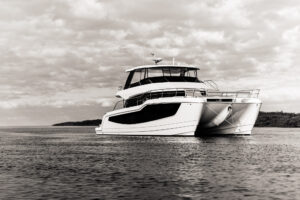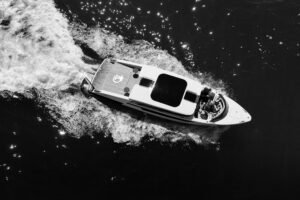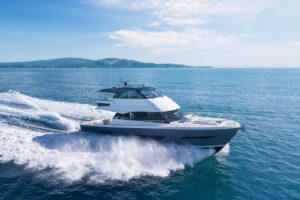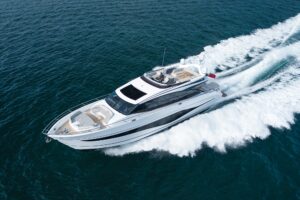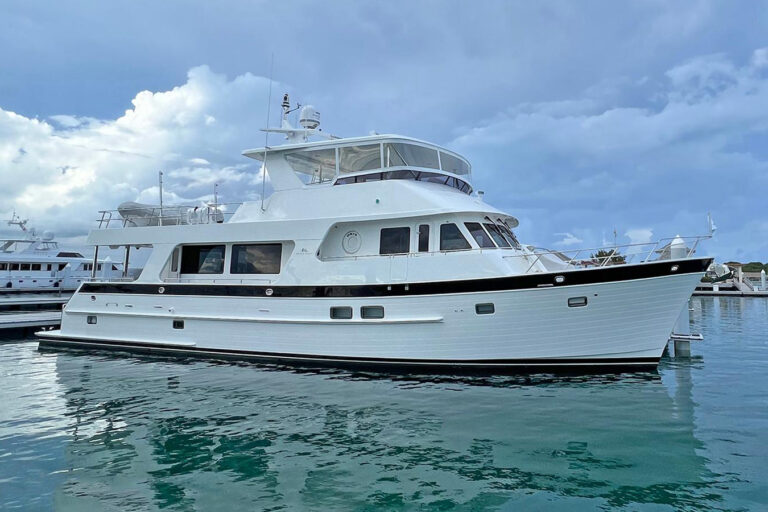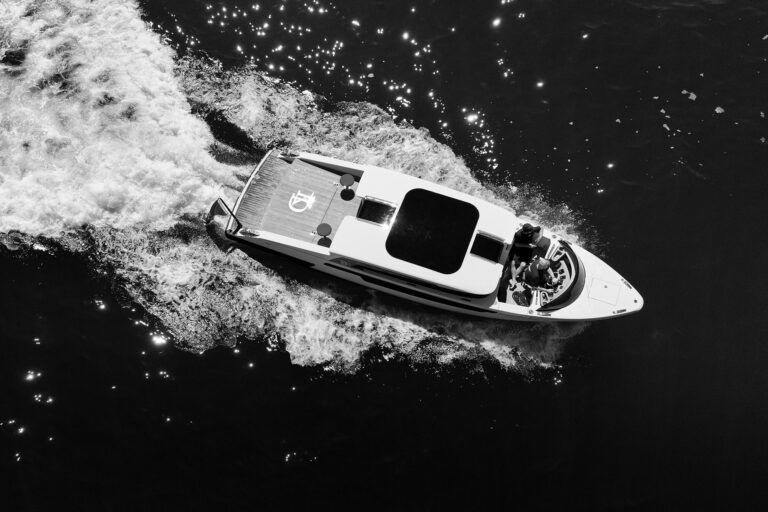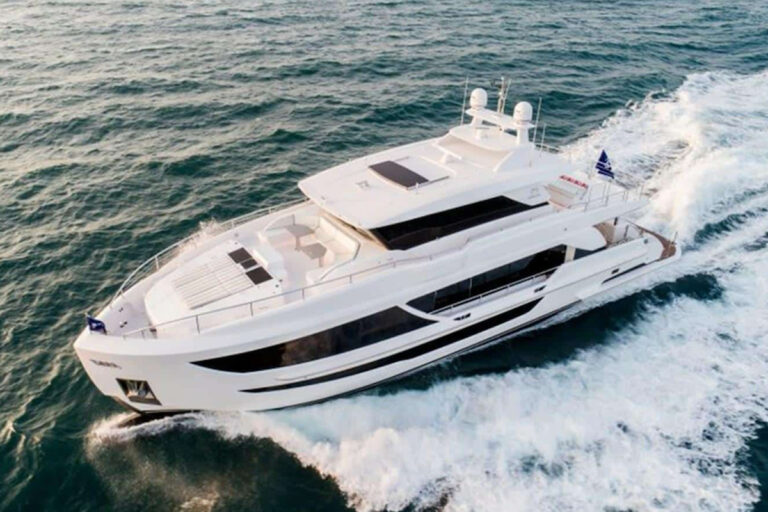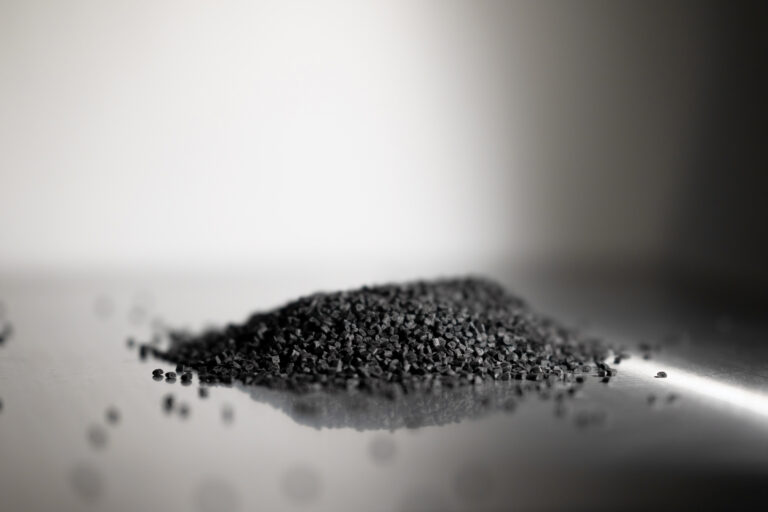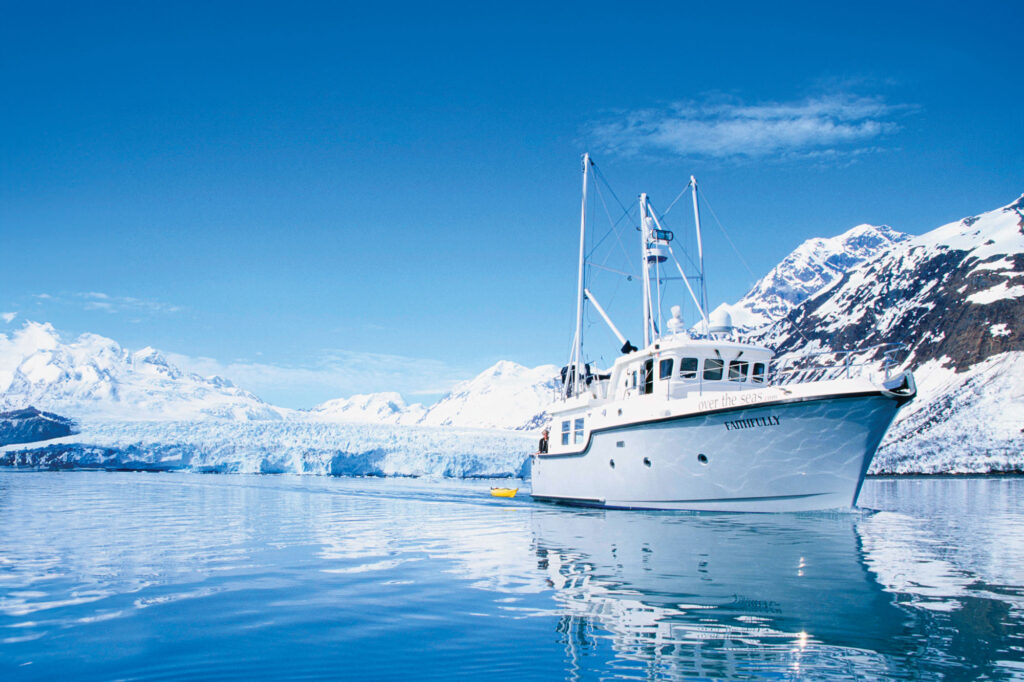
It’s 1974. There is Watergate. The oil crisis has ended. People are laughing through Blazing Saddles and reading Carrie by a young novelist named Stephen King. Eight-track tapes play The Way We Were by Barbra Streisand.
And in Dana Point, California, three young yacht brokers formed a company, Lemest Yachts. It would go on to become Pacific Asian Enterprises (PAE) and create globe-trotting vessels called Nordhavns that would change the yachting world.
Joe Meglen was a longtime boater, while Dan Streech and Jim Leishman had bluewater cruising backgrounds aboard sailboats—which were considered, at the time, the only vessels suitable for serious offshore cruising. The trio soon built a solid reputation for exquisitely built, Al Mason-designed sailing yachts while expanding their rapport with blossoming Taiwan boatbuilders. The 212 Masons they built during the first 20 years are still in high demand on the brokerage market today.
But it was the confluence of three factors that led to the creation of Nordhavn Yachts.
First, Robert Beebe wrote a revolutionary book, Voyaging Under Power, in 1975. It detailed the 60,000 miles he had put on Passagemaker, a 50-foot offshore motoryacht that he had built in Singapore.
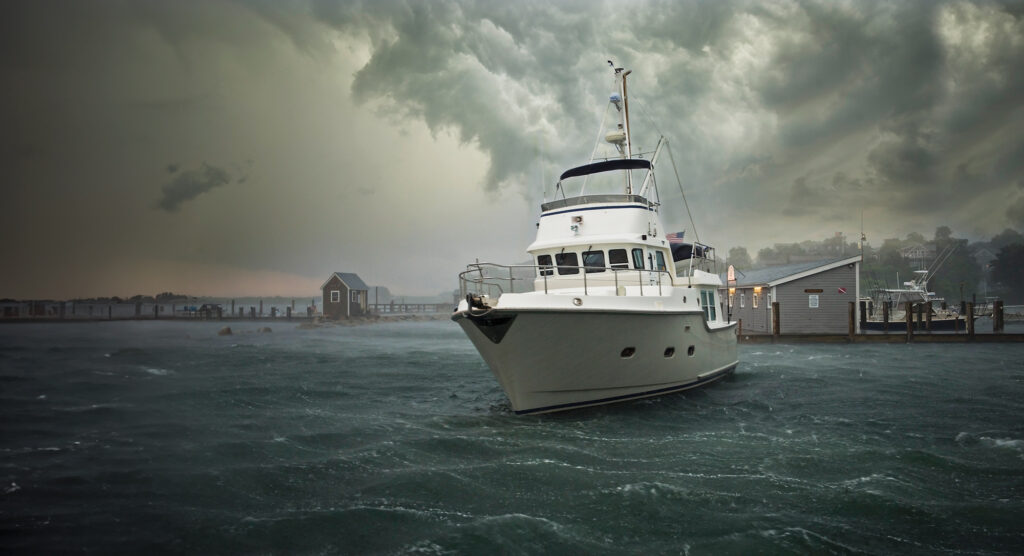
Second, Jim Leishman’s younger brother, Jeff, was finishing his schooling as a naval architect, and his final assignment was to design a vessel of his choosing. Jeff was intrigued by the offshore power-cruising concepts in Beebe’s book and designed an offshore cruiser.
Third, the partners of PAE decided to build Jeff’s 46-foot powerboat design.
Because it was reminiscent of North Sea fishing trawlers, it was named Nordhavn (Norwegian for “north harbor”). At first, only loyal Beebe followers embraced the yacht, but there was soon a growing market of sailors tired of cranking winches and squeezing into limited accommodations. The sales momentum built, and a tidal wave of serious offshore power cruisers appeared. Nordhavns were not only the antithesis of all the effort needed to sail, but also capable of making long ocean voyages as easily as you’d run to the corner store.
“Timing is everything,” Streech says. “It was a moment in time, and we were dumb and smart enough to fall into it.”
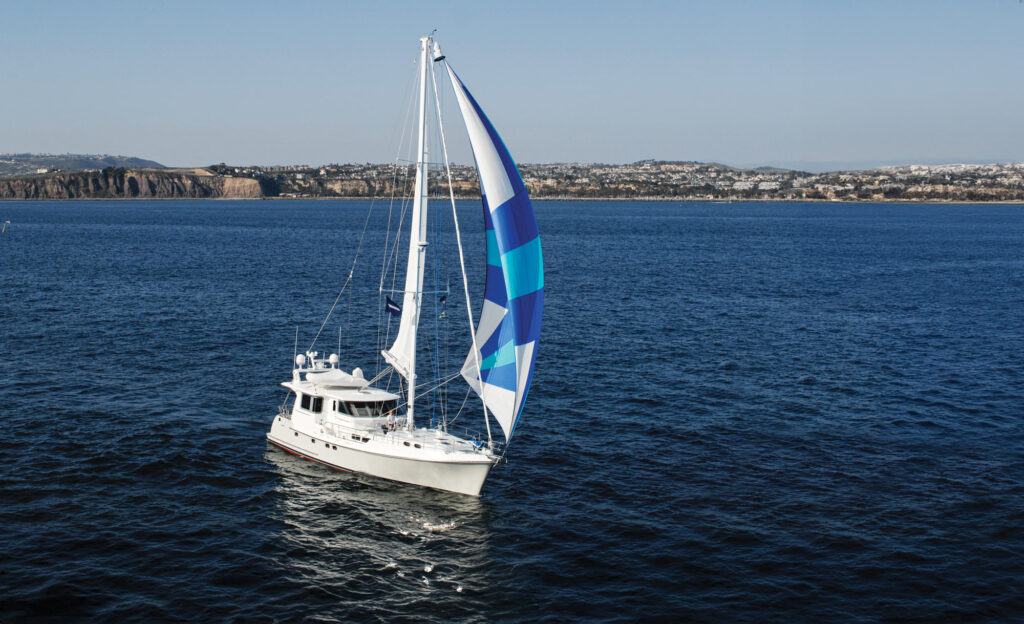
PAE has produced 80 Nordhavn 46s, which set the stage for the current line of 17 Nordhavns that range from 41 to 120 feet length overall.
To date, there are more than 150 Nordhavn ocean crossings and a dozen circumnavigations, which include records for the first production powerboat to circumnavigate (Salvation II) and the fastest circumnavigation by a production powerboat. The Nordhavn website lists many more extreme cruises, such as the Northwest Passage, circumnavigating Australia, and cruising to Cape Horn and Antarctica.
Streech says a reason for the success of Nordhavns is that they appeal not only to former sailors, but also to cruisers who want a better lifestyle than a sailboat can offer. Nordhavns have air conditioning, washer-dryers, walk-around engine rooms, stabilizers, watermakers and the like.
Early Nordhavns were the antithesis of the twin-engine motoryachts of that era. Nordhavns had a single diesel engine—often a 167 hp Lugger—with generators linked to get-home power takeoffs to spin the prop. Today, the Nordhavn 86 uses twin 600 hp Caterpillar C18 diesels, yet still has a range of more than 5,000 nautical miles at 8 knots. At 10 knots, owners still get a 4,000 nm range at 1 mpg.
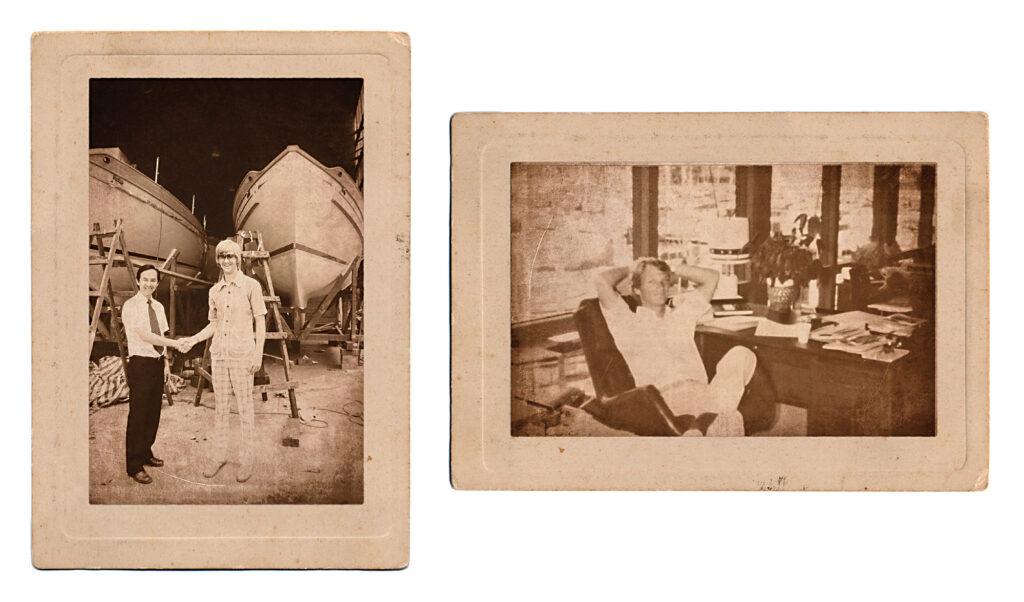
Angela O’Dowd, with her husband, Gerry, had the notion to cross the Pacific on their N43, Celt. Former sailors, they appreciated not having to trim sails or zigzag with the wind. “We enjoyed all the comforts, especially the stabilizers, which made the trips feel so much smoother than the heeling over we were used to,” she says. During a crossing from Panama to the Marquesas, she adds, “We baked Irish tea bread and watched television… cruising at 7 knots.”
When Carine and Doug Bullock bought their Nordhavn 47, Downshifting, they planned to harbor-hop through retirement, but Doug died unexpectedly. Carine decided to honor his life and has continued cruising from Maine to Grenada. At press time, Carine (and her two dogs) had planned on heading to the South Pacific from the Caribbean, hiring crew to help, but doggy papers were more difficult to obtain than human visas. She is harbor-hopping Mexico’s West Coast in the meantime. “It’s going to be very exciting,” she says.
Nordhavns are currently built in four factories—one in China, two in Taiwan and one in Turkey—allowing new owners to pick up their boats and cruise the Mediterranean before shipping them to North America.
Nordhavn isn’t resting on its laurels, though. The newest Nordhavn is the 51, following the popular N41, with the pilothouse set well aft and twin John Deere 160 hp diesels. The pilothouse is separate from the living areas and, with two en suite staterooms, the boat is designed for passagemaking. New projects are on the boards: There is talk of a 112-footer, as well as a 68-footer without a flybridge, and maybe a new 71-footer.
If you dream of the volcanic peaks of Mo’orea, the quays of Greece, or impulse cruising to the Caribbean, the Nordhavn could be that dream answered. For shorthanded cruisers, ocean voyagers and experienced skippers, Nordhavn has a yacht for those with wanderlust and the desire to cross blue water.
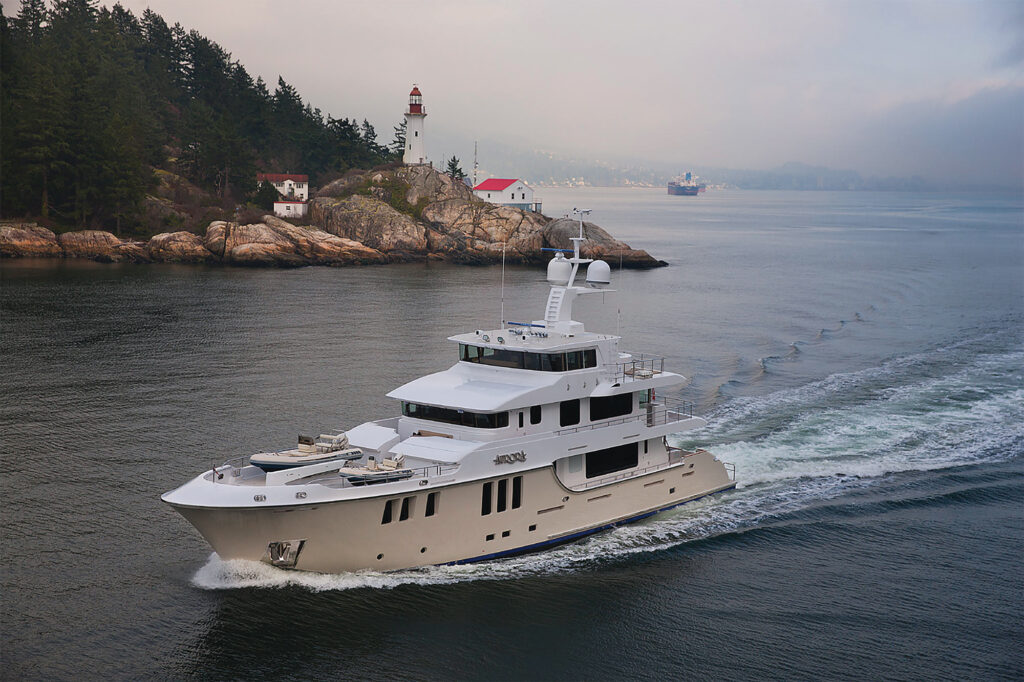
Open-Water Ready
Nordhavns are designed and built by people who have crossed oceans. The Nordhavn 63, for example, is a solid laminate of vinylester resin (no blisters) with a complex network of full-length, longitudinal and transverse stringers. Offshore strength is in the details: a 12 mm Diamond Sea Glaze forward-raked windshield, dogging wing doors to the Portuguese bridge, fiberglass fuel tanks, a full walk-around engine room, and a hefty 5 tons of ballast.
Bob Beebe
A former US Navy officer (a navigation officer for the carrier Saratoga in World War II), Beebe’s book, Voyaging Under Power, sprang from an article in Rudder Magazine espousing long-range cruising under power. He touted “flopper-stoppers,” underwater metal kites from booms that were predecessors to stabilizers. With his ever-present pipe, Beebe put 60,000 nautical miles on Passagemaker, which weighed a mighty 27 tons, and had a 15-foot beam (for European canals) and a draft of 5 feet, 4 inches for island exploring. Never described as a “pretty” boat, it had all the purposefulness of an Abrams tank.
Beebe was also known for his “trawler-truth” ratio that disparaged so-called trawlers that could do 30 knots and were supposedly capable of offshore adventures. His formula was simple: The weight of the ballast should be half that of the fuel weight, which would offer stability even as the fuel burned off on a long crossing.
Passagemaking Pioneers
Robert Beebe and Nordhavn didn’t invent long-distance power cruising. In 1902, the New York Kerosene Engine Company sponsored William C. Newman and his 16-year-old son in a transatlantic crossing with a 38-footer from New York to Falmouth, England. In 1912, Thomas Fleming Day, who founded Rudder Magazine, crossed in his 35-foot Detroit with an open cockpit. In 1936, Frenchman Marin-Marie made a solo 19-day crossing aboard his 42-foot Arielle, which was equipped with newfangled gear: wind-vane steering and an autopilot.
Take the next step: nordhavn.com

